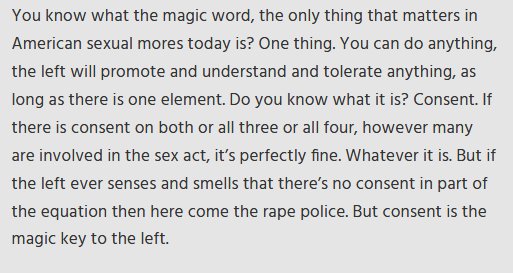
All fish live in the sea.
Sharks live in the sea.
Therefore, sharks are fish.
He asks a number of people who were taught to shun queer people what changed their feelings on homosexuality.
Now he's talking about the leaders themselves.
They are different-but-related belief systems.
The democratic idea that, if you don't like your politicians, you should become one yourself? That doesn't play here.
Dominators do not believe this.
Authoritarian followers believe they are righteous. Social dominators believe NO ONE is righteous.
Don't ask me how the reconcile "no one really believes in anything" with "gee, all my followers are extremely pious."
They don't aggress unless society is giving them permission to aggress.
If society says it's not cool to hate women, fuck society, they hate women anyway.
Social dominators already exist lawlessly, dog-eat-dog, and they want to be the biggest dog.
None of this applies to social dominators.
Hard to say.
People lie, cheat, and manipulate, and it gets them what they want, so they rationalize it and keep doing it.
Patriarchy, hey-o.
He calls them Double Highs.
Dogmatic and self-righteous like a follower, self-interested and manipulative like a leader.
They are the ideal candidates for amassing followers.
They also failed to deal with crises and created a few.


